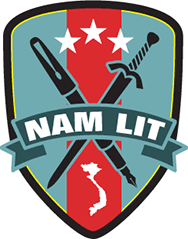 |
||||||||||||
|
November/December 2015 War Writer: BY PHILIP CAPUTO
A curious statement. If the chairman had hired, let’s say, Joseph Conrad, would he and the faculty have hoped for Conrad to get beyond writing about the sea? Or, more to the point, for Siegfried Sassoon, the great poet and novelist of World War I, to get beyond writing about the trenches on the Western Front? It was as if this professor and his colleagues regarded war in general, and the Vietnam War specifically, as a not-quite legitimate topic for literary endeavor. The animus so many Americans felt toward the Vietnam conflict, particularly on college campuses, may have affected the faculty’s attitude about the literature it produced. Likewise, there is a suspicion, prevalent in academic circles, that a war writer is not truly a writer until he or she has written well about something else, something closer to ordinary life as it is experienced by ordinary people. The implication is that war is so inherently dramatic, so lurid and violent and terrible, that writing a good or great book about it doesn’t require great artistic talent. Photographers have an analogous opinion about war photography. All it demands, an old saying goes, is “f/8 and be there,” meaning that on a battlefield just about anyone with a camera can point it just about anywhere and come up with an acceptable picture. If that someone happens to be at the right place at the right moment, the photo might be a prize-winner, thanks more to the photographer’s luck than to his or her skill. So, can a war writer ever stop being one and move on to other themes? Should he? The “can” part of the question often depends on how deeply he’s been affected by the experience of war. Anyone who has seen it is changed forever. For some, it is so transformative that they cannot forget it. Joseph Heller once told me that he thought seeing too much combat permanently dyes a writer’s imagination, to the point that he cannot relate to normal life (whatever that is), its emotions and concerns Heller and his contemporary, James Jones (From Here to Eternity and The Thin Red Line), are examples. A bombardier in a B-25 squadron, Heller admitted that he saw little action, flying what he called “milk runs” in the Italian theater in World War II. This viewpoint—literally above the fray—allowed him to see the war not as a life-and-death struggle but as a huge metaphor for the absurdity of the modern world. From this arose his brilliant satire, Catch 22. After that, he went on to write critically acclaimed novels and plays that had little or nothing to do with his war. On the other hand, Jones, a rifleman in the 25th Infantry Division, witnessed the bombing of Pearl Harbor and later fought in the Battle of Guadalcanal, where he was wounded. Virtually all of his literary output dealt with the war and its aftermath. It’s interesting to note that Heller’s Wikipedia entry describes his genre as “Satire, black comedy,” Jones’s as “World War II fiction.”
Let us turn back to Vietnam, a very literary war. “More books have been written about the Vietnam War than about any other American war,” Ken Lopez, a California bookseller and rare book dealer, writes in his essay, The Literary Legacy of the Vietnam War. His list of fiction, nonfiction, memoir, and poetry runs to more than 3,500 titles, an astonishing outpouring, considering that the conflict was confined to a small country on the periphery of Asia. Why this flowering—if I can use so genteel a term? In part, the war was like none America had fought up until that time—a brutal, confusing, ultimately pointless conflict waged in a landscape as alien in its way as the surface of another planet. It tore at the American social, political, and cultural fabric as no other war had since the Civil War; and it was the only war the country had ever lost. It gave rise to a number of literary reputations, but only a handful of its writers have achieved recognition outside the field, publishing acclaimed books on other themes: Tim O’Brien, Robert Stone, Tobias Wolff, to identify three. Yet even they have found it difficult to extricate themselves from Vietnam. Entrapment in the, so to speak, literary quagmire has much to do with the intensity of a writer’s experiences in battle. To apply Heller’s axiom: The more he saw of it, the harder it will be to liberate his imagination from its grip. But a lot also has to do with public perception. Often, the war novelist becomes branded as such, in the same way that John le Carré is branded as a thriller writer (though he is much more) or Stephen King, a writer of horror stories. In my own career, convincing people that my scope is not limited to the Vietnam War has been something of a losing battle. Out of my fifteen books, fiction as well as nonfiction, only the first, A Rumor of War, deals exclusively with Vietnam. Most of the rest have covered broader canvases and a wider range of human experience. Nevertheless, about 90 percent of the emails, letters, and website responses I receive mention only A Rumor of War; and I cannot count how many times I’ve heard from someone I meet: “Oh, you’re Phil Caputo. I read your book,” as if the others don’t exist. Don’t misunderstand! I’m not whining. Only pointing out that once you’ve published a successful war story, you’ll have a hell of a time persuading readers that you’re not a one-trick pony. I can’t speak about other writers, so I’ll just speak for myself. Although my first book is the only one set entirely in Vietnam, the war informs and colors almost everything else I’ve done. Its shadow falls over novels that take place in Africa, the Middle East, and the United States. Vietnam’s power to uncover the truths about one’s own nature, about human nature generally, explain why it captured my imagination, my mind and soul, and in many ways has never let me go. I went into the war with a certain idealized image of myself and of my fellow Marines. I expected a glorious, heroic story to unfold. Something quite different happened. In a sense, I died and was reborn in Vietnam. In ordinary life, we try to project attractive pictures of ourselves: We put our best foot forward, constrained from bad behavior by policemen and ministers, by the desire for rewards, by the opinions of our neighbors. And we become convinced that these decent, smiling, high-minded selves are who we really are. Those guardrails were missing in Vietnam. It disallowed all pretense. It had the same effect on one’s illusions of self as its climate had on a rifle barrel’s bluing, stripping it away, revealing the base metal beneath.
To put it more plainly, the war exposed a man’s true character. Probably all wars do. Sometimes the discovery is flattering, sometimes anything but. You might meet your angels; you might be introduced to your devils, and if you’re not careful, you’ll make friends with them and start doing what they tell you to do. More likely, you’ll shake hands with both the best and the worst that’s in you. All wars. Henry Fleming, the protagonist of Stephen Crane’s Civil War novel, The Red Badge of Courage, learns to his shame that he is a coward. He flees from a battle, deserts his regiment. But later, unable to bear his disgrace, he rejoins his outfit and finds out that he’s a capable soldier, and, in the crucible of close combat, that he can be very brave. He picks up the regimental standard when the color-sergeant is killed and charges the enemy. I had a different sort of awakening, an insight into a side of my personality I hadn’t known was there. Like Crane’s Pvt. Fleming, I, too, felt ashamed of myself—not for running away, because I didn’t run—but for enjoying fighting and killing a little too much. I had thought myself more civilized—more virtuous, if you will—than I turned out to be. Further, I saw that the men under my command were not as civilized or virtuous as I had thought them to be. The disturbing thing was, they could be exemplary soldiers one day, brutal the next. You just never knew when or why Dr. Jekyll would vanish and Mr. Hyde suddenly appear. One of the two great lessons I learned from Vietnam was that anyone is capable of anything at any given moment. It may be an act of heroism or self-sacrifice, or one of cruelty; you can never predict which. All wars. “Merry it was to laugh there,” wrote Wilfred Owen of the Western Front in 1917. “Where death becomes absurd and life absurder/ For power was on us to slash bones bare/ Not to feel sickness or remorse of murder.” Sickness and remorse came over me after I returned to civilian life. I felt that I had failed my most cherished image of myself. I had become someone who repulsed me, and a long struggle to come to terms with that stranger followed. But another bitter lesson came out of this experience: He who denies his devils is more likely to fall prey to them. I had passed from the false light of illusions into the darkness, and emerged into a harsher but more honest light. In all of my fiction, regardless of setting or circumstance, my concern has been with how people conduct themselves when there are no policemen or priests or neighbors to guide them; it’s with moral failure, the committing of it and the conquest of it. So, if the chair of the English Department were to ask me to “get beyond” Vietnam, I would have to tell him “never.” It clings to me like the mud of the rice-paddies, like the leeches that dropped from the jungle’s trees.
|
||||||||||||
|
|
||||||||||||
|
||||||||||||
8719 Colesville Road, Suite 100, Silver Spring. MD 20910 | www.vva.org | contact us |
||||||||||||





















 A while back—I can’t say how far back this while was—I heard a story about a poet who had been hired to teach writing and literature at a prestigious university. The English Department chair, after expressing admiration for the poet’s work, said that he and the faculty hoped he would “get beyond” his subject matter, the Vietnam War.
A while back—I can’t say how far back this while was—I heard a story about a poet who had been hired to teach writing and literature at a prestigious university. The English Department chair, after expressing admiration for the poet’s work, said that he and the faculty hoped he would “get beyond” his subject matter, the Vietnam War.